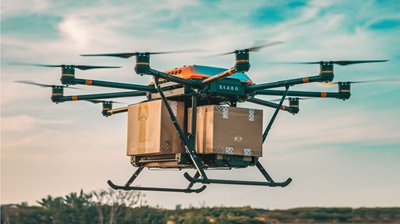MarketLens
Schrodinger’s AI Revolution: Transforming Drug Discovery and the Pharmaceutical Industry
In recent years, artificial intelligence (AI) has become a transformative force across various industries, with drug discovery being no exception. Traditional drug development processes have often been lengthy and expensive, involving considerable resources for research, development, and clinical trials. Companies like Schrodinger are leveraging AI technologies to revolutionize this field, enabling faster, more efficient, and cost-effective drug discovery. This article explores Schrodinger’s approach to utilizing AI in drug discovery, the potential market implications, and the overall impact on the pharmaceutical industry.
The Role of AI in Drug Discovery
AI is playing an increasingly vital role in drug discovery by streamlining data analysis, optimizing chemical structure prediction, and reducing the time required for the identification of potential drug candidates. One of the most significant impacts of AI in this area is its ability to process vast amounts of data quickly, something that would be time-consuming and error-prone for humans. This efficiency not only accelerates the discovery process but also improves the accuracy and precision of drug candidates, reducing the likelihood of later-stage failures.
Schrodinger’s Approach to AI-Driven Drug Discovery
Schrodinger has been at the forefront of integrating AI into drug discovery. The company’s proprietary technology combines physics-based computational methods with advanced machine learning algorithms to predict molecular behavior and interactions accurately. Their platform, Maestro, utilizes these technologies to simulate and model complex biological systems, thus enabling researchers to predict how different drug molecules will interact with targeted proteins or other biomolecules. This predictive capability significantly reduces the time and resources required for preclinical testing, offering a more efficient path to viable drug candidates.
Market Implications of AI in Drug Discovery
With AI driving a faster and more precise drug discovery process, the pharmaceutical market stands to benefit immensely. The reduced time-to-market for new drugs would not only diminish development costs but also accelerate the availability of potentially life-saving medications. Additionally, AI data analytics can identify patterns and correlations that might be missed by traditional methods, potentially uncovering breakthrough treatments for complex diseases. This technological shift portends a more competitive landscape where companies that adopt AI-driven discovery processes may find themselves at a significant market advantage.
Setting New Industry Standards
Schrodinger’s innovative use of AI is setting new standards for the pharmaceutical industry. By providing robust computational tools that can accurately predict molecular interactions, they are enabling scientists to focus more on validating and fine-tuning potential drugs rather than spending excessive time on trial-and-error approaches. This AI-centric model is not only driving the efficiency of drug development but also opening up new avenues for addressing previously unmanageable diseases, pushing the boundaries of what medical science can achieve.
Influencing Pharmaceutical Growth Strategies
The integration of AI in drug discovery is inevitably influencing how pharmaceutical companies strategize their growth. Firms are increasingly investing in AI technologies to streamline their R&D processes, aiming to outpace competitors in the race to market new drugs. Schrodinger’s AI-powered solutions are providing these companies with the tools needed to enhance their research capabilities, reduce costs, and increase the rate of successful drug development. This shift promotes a more dynamic and innovation-driven industry landscape, encouraging investments in novel therapies and expanding the potential for market growth.
Future Implications and Industry Transformation
Schrodinger’s pioneering work in AI-powered drug discovery holds significant implications for the future of the pharmaceutical sector. By enabling more accurate predictions and facilitating rapid development cycles, Schrodinger’s approaches are likely to become industry standards. This will lead to a redefinition of how new drugs are discovered and developed, making room for more collaborations between tech companies and pharmaceutical giants. Ultimately, this synergy could lead to an era of unprecedented innovation, where medical breakthroughs occur more regularly and with greater societal impact.
Conclusion
As AI continues to permeate the drug discovery process, companies like Schrodinger are leading the charge towards a more efficient and innovative era in the pharmaceutical industry. Their combination of physics-based modeling and machine learning stands to not only expedite the development of new drugs but also transform the market dynamics, making innovative treatments more accessible and revolutionizing how healthcare challenges are met. The continuing evolution of AI technologies promises to shape a future where drug discovery is faster, more accurate, and less costly, ultimately fostering a more competitive and dynamic pharmaceutical landscape.
Related Articles
Category
You may also like
No related articles available
Breaking News
View All →No topics available at the moment






